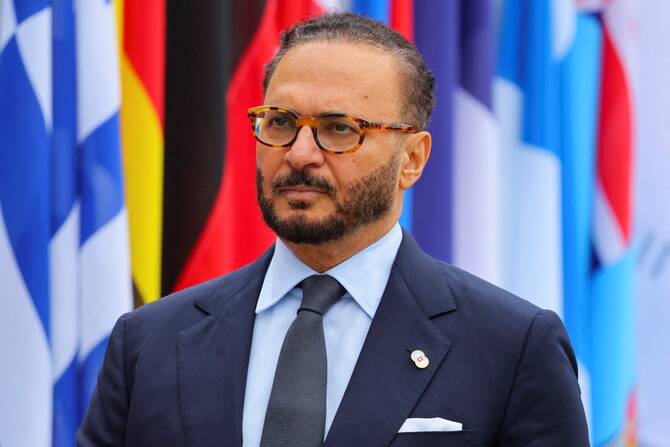JEDDAH/NEW YORK: US Defense Secretary Jim Mattis and the Syrian opposition said on Wednesday that the Syrian government was responsible for delays in inspectors reaching sites of a suspected chemical weapons attack, a strategy they had used in the past.
“We are very much aware of the delay that the regime imposed on that delegation but we are also very much aware of how they have operated in the past and seal what they have done using chemical weapons,” Mattis said before the start of a meeting with his counterpart from Qatar.
Mattis statement came as UN security team was fired at on Wednesday while on a reconnaissance mission in the Syrian town of Douma to prepare the deployment of experts investigating an alleged chemical attack, officials said.
Syrian opposition spokesman Yahya Al-Aridi pointed out that Douma was an opposition stronghold for five years but is now fully under the control of Russian and Assad regime forces.
"Whoever opened fire on the UN team was obstructing the investigation into the chemical gas attack, and the only people with an interest in doing that were the Assad regime," Al-Aridi told Arab News.
“It’s quite clear who the perpetrator is, and it is indicative of somebody who has committed a war crime and is afraid to be discovered. The shooting was a challenge to the will of the international community, especially the US, France and Britain, who launched missile strikes last week on regime chemical-weapons facilities in response to the Douma attack, he said.
Al-Aridi added that the missile strikes “may not have made a difference on the ground, but they definitely sent a message that Assad is not eligible for any kind of rehabilitation.”
The experts from the OPCW chemical watchdog were awaiting the green light from the security team before beginning their on-site investigation in Douma of the alleged attack.
The suspected April 7 gas attack on Douma, near Damascus, reportedly left more than 40 people dead and was blamed by Western powers on Syrian President Bashar Assad’s forces.
British Ambassador Peter Wilson told reporters in The Hague that the security team on Tuesday traveled to two sites in Douma, escorted by Russian security police.
The officials were greeted by a “large crowd” of protesters at one site, forcing them to withdraw while at the second site “they were subject to small-arms fire and an explosion,” Wilson said, citing information from the OPCW director general.
Ahmet Uzumcu, the head of the Organization for the Prohibition of Chemical Weapons, told ambassadors in The Hague that it was unclear when the fact-finding mission will be able to deploy to Douma, Wilson added.
The UN official, who declined to be named, said the security team would remain in Damascus with the OPCW experts for the time being.
Asked whether the team was specifically targeted, Wilson said, “I can’t answer that question. It’s very much a question for the OPCW.”
The inspectors arrived in Damascus on Saturday, when Britain, France and the United States launched military strikes against what they said were targets linked to Syria’s chemical weapons program.
Syria’s UN Ambassador Bashar Jaafari told the Security Council on Tuesday that the OPCW experts would begin their investigation once they received the all-clear from the UN security team.
“If this United Nations security team decides that the situation is sound in Douma, then the fact-finding mission will begin its work in Douma tomorrow,” Jaafari said.
(With Reuters)
















